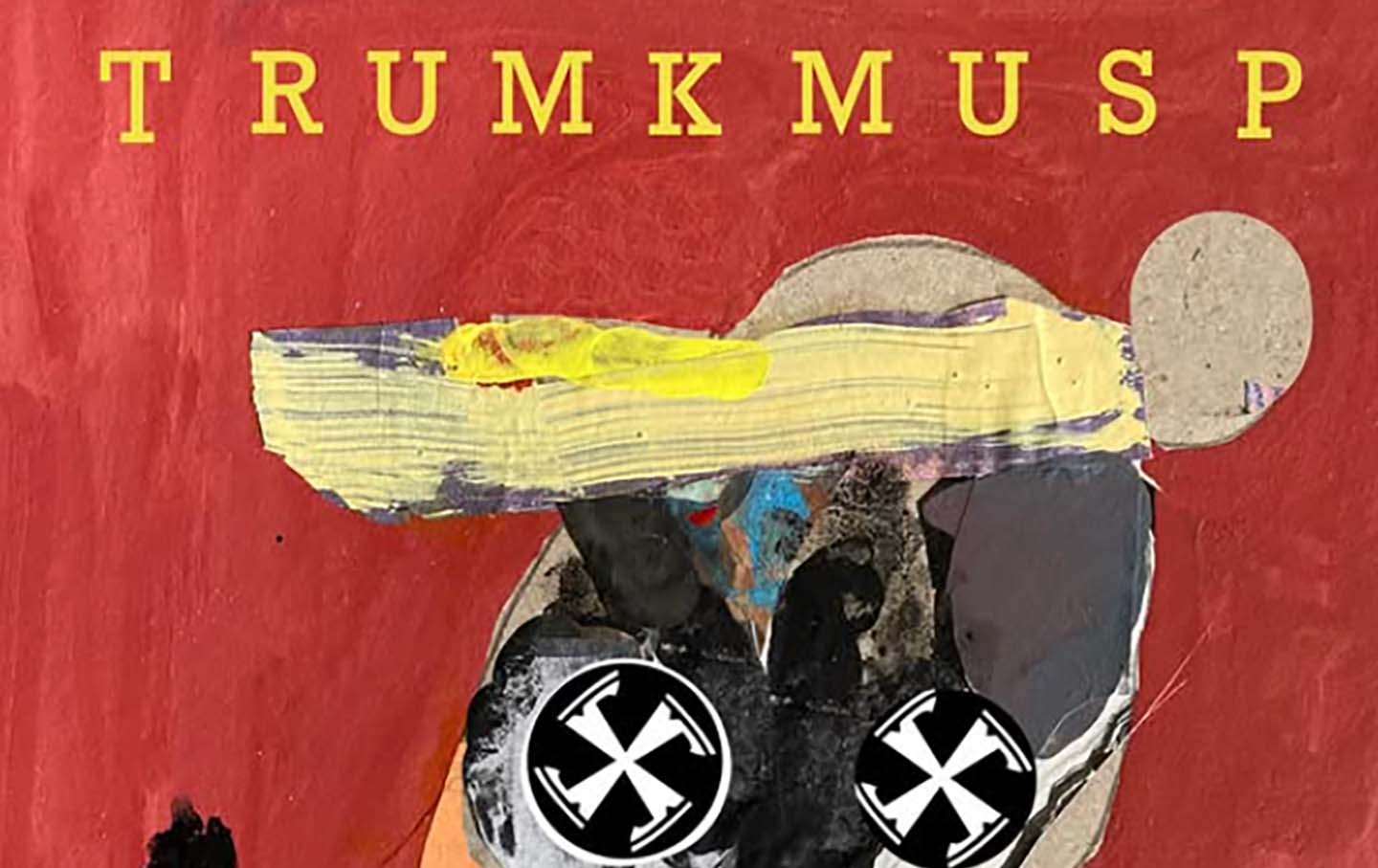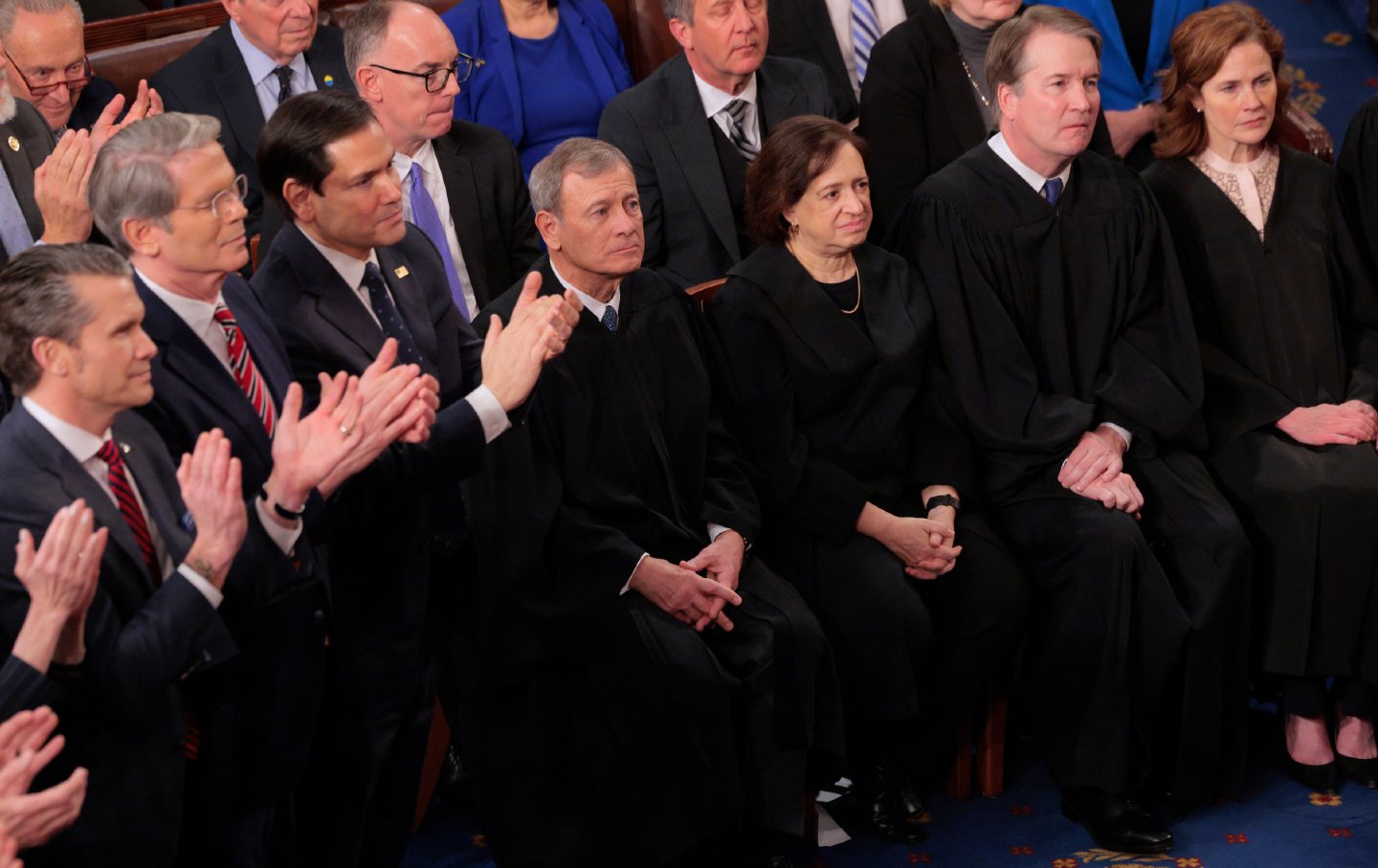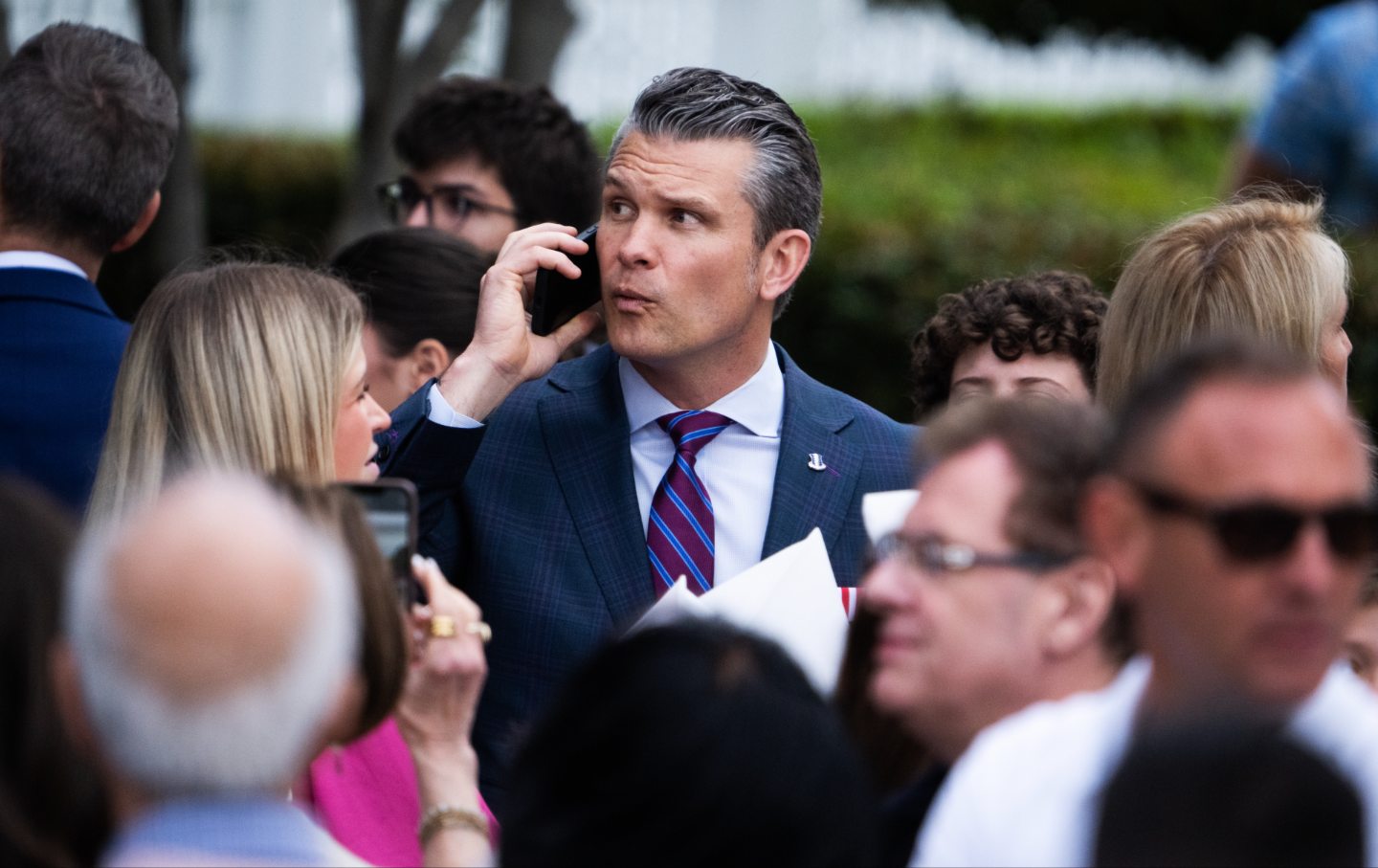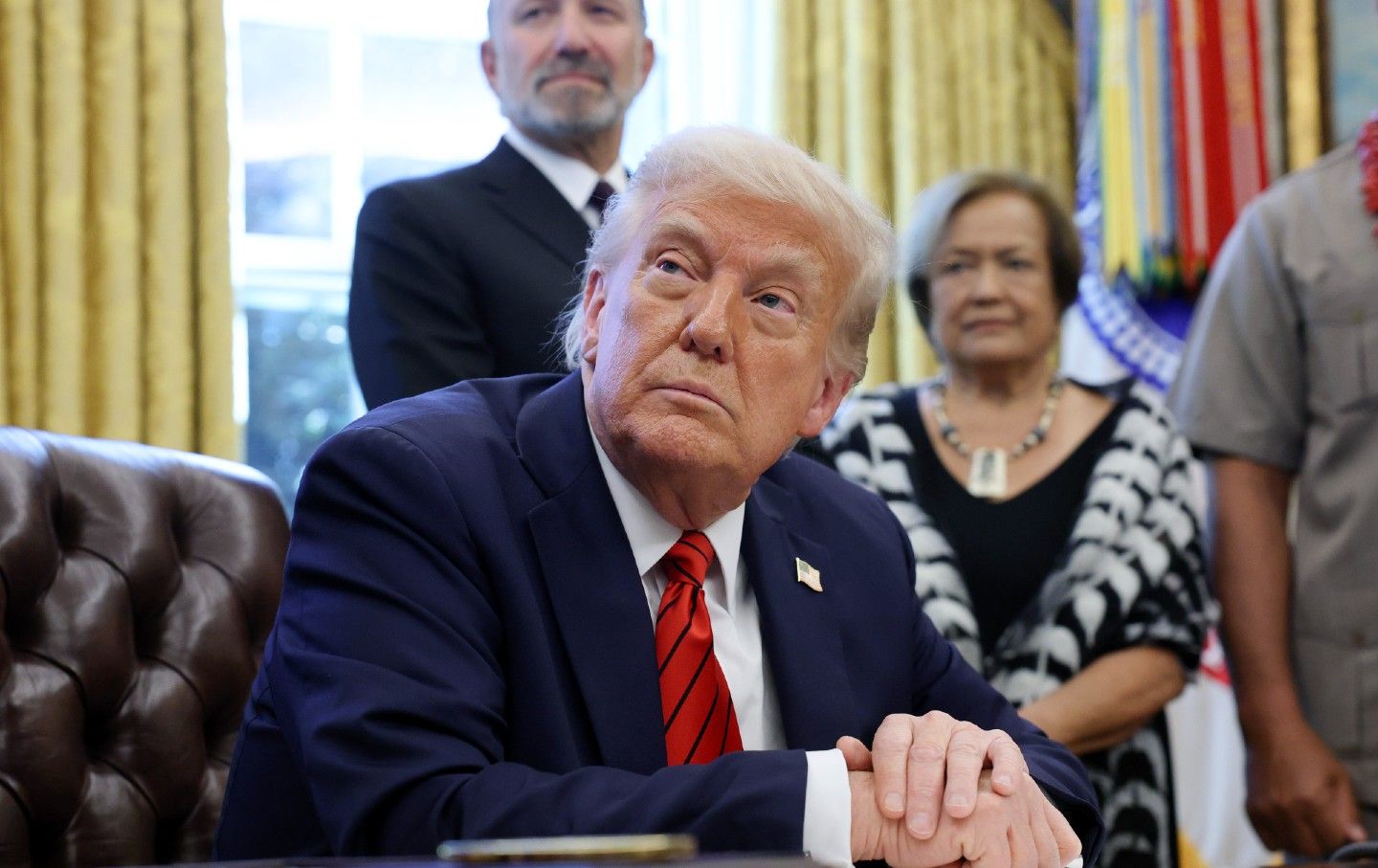The Agony of JD Vance
The vice president’s main job appears to be to embody the banshee scream of a dying order.
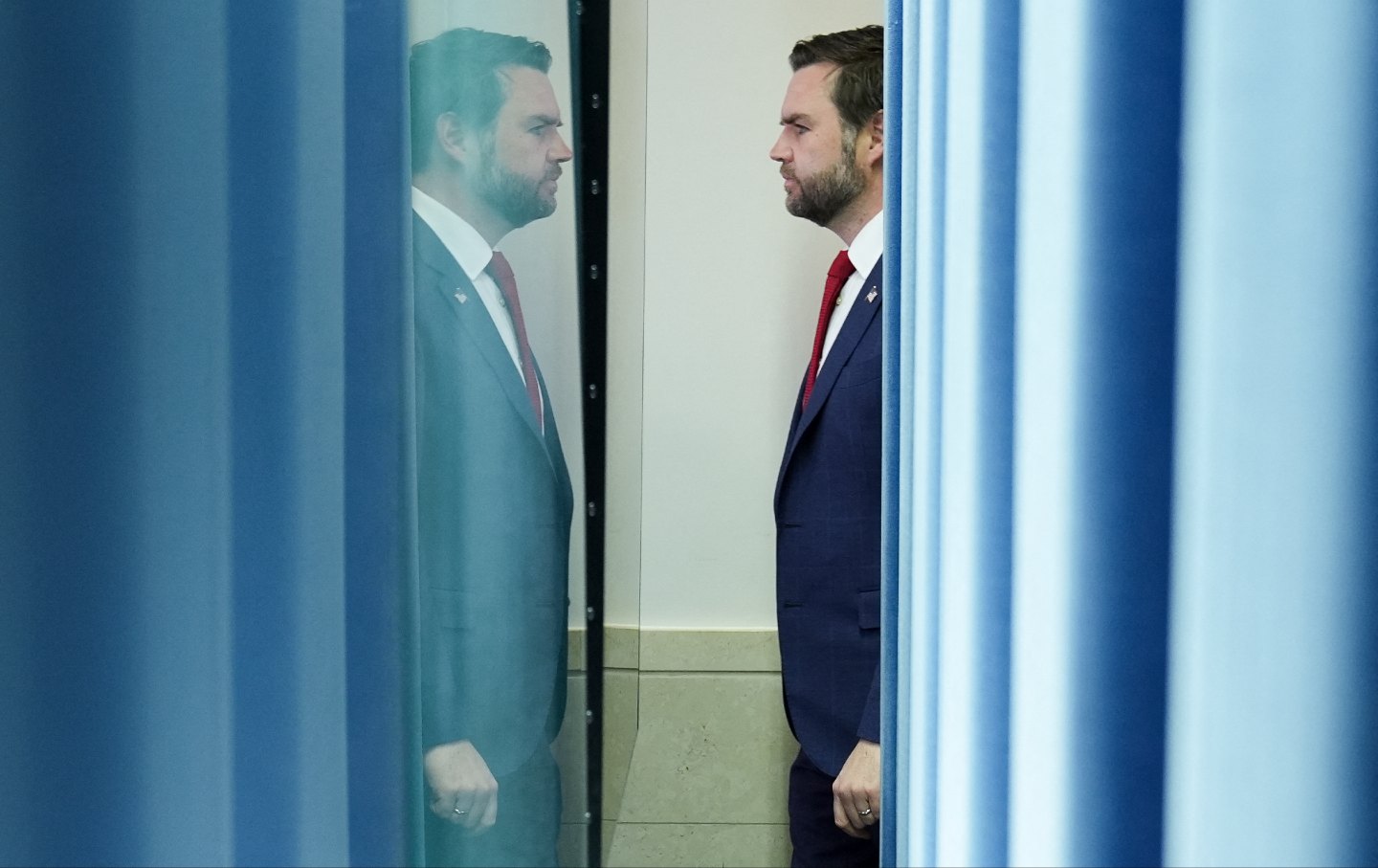
JD Vance arrives at the Brady Press Briefing Room at the White House on January 30, 2025.
(Oliver Contreras / AFP via Getty Images)There’s a Kentucky maxim about politics that old timers like to tell: “Never give your capitol speech at home; and never give your hometown speech at the capitol.” Last month, Vice President JD Vance broke that rule when he visited Munich and told the continent’s leaders that they needed to lift the ban on far-right political parties and allow them back into the mainstream.
The European leaders were understandably shocked. These far-right parties often, at the very least, question the official narrative of the Holocaust, if not evince outright sympathy for its aims. But whereas this kind of thing is for now still mostly out of bounds in European politics, it is currently acceptable to say here in Vance’s hometown in America, where our own perennially sublimated white nationalist movement—best embodied by the Confederacy—has all but returned to full strength.
Still, it was an odd thing for a vice president to say out loud and in public. Even the most activist of vice presidents—Dick Cheney, for example—have kept a relatively low public profile compared to their bosses. (It sometimes seemed like you could go months at a time without knowing what exactly Kamala Harris was doing.) It would have been unthinkable coming from Trump’s first vice president, Mike Pence. A statement like that is more fitting of a secretary of state, or a national security adviser.
But since taking office in January, Vance has routinely inserted himself into debates far above his pay grade, handily exploiting a liberal media environment already primed to consume—with equal parts guilt, fascination, and masochism—what he has to say. And, whether he’s ranting at random people on Twitter or provoking an argument with the literal pope, he is saying a lot, all the time, very loudly.
It all amounts to a very different version of the vice presidency than the one we’re used to. Rather than taking on a particular policy portfolio or confining himself to standing silently behind Trump at speeches, Vance has assumed the role of the administration’s leading cultural warrior and theoretician. His appointment by Trump to negotiate the future of TikTok, as well as that recent spat with Pope Francis concerning who it is and isn’t acceptable to show empathy for, show where his priorities lie.
The vice president appears to spend most of his time in the lab (i.e., Twitter) working out the details of how and why all of the Trump administration’s cruelty is consistent with MAGA’s three material constituencies: evangelical Protestants, traditional Catholics, and techno millenarians—three constituencies which Vance’s personal life trajectory has synthesized into a coherent political grouping.
Vance doubled down on his tendency for spectacle during the instantly notorious Oval Office meeting with Ukrainian President Volodymyr Zelensky. After what began as a tense but still cordial discussion, the vice president suddenly erupted into a tirade about the Ukrainian leader’s mishandling of the war, and his lack of adequate deference to the United States for enabling it. “Have you said thank you once, this entire time?” Vance cried, with a stolid Secretary of State Marco Rubio buried into the couch next to him.
Zelensky tried to protest, but this brought President Trump into the fray, initiating a now-infamous fight that all but scuttled any attempt at an immediate ceasefire and, more importantly from Trump’s point of view, a Ukrainian minerals agreement. (Ukraine and the US have since returned to the negotiating table.)
Whether Vance’s action was pre-planned or off-the-cuff is beside the point; it visibly thrilled Trump, and it had the desired effect of symbolically and officially breaking with the Biden administration’s position on the war. What is more relevant is the content of Vance’s outburst, and what it portends about his role in American politics.
As an articulation of American imperial policy post–World War II, Have you ever once said thank you? is at once superfluous and novel. To the degree that it is a break from the past, it is imperialism as political spectacle, something that one particular party’s base can claim as theirs, and metabolize as an extension of their own nation’s future. Prior to this moment, the cause of Ukraine had been presented as in the nation’s interest; it is now exclusively in the Democrats’ interest, and its abandonment is in the Republicans’ interest. Because of this, it is also the very public death rattle of a previous imperial paradigm—the banshee scream of an empire throwing a tantrum because it is increasingly unable to reproduce hegemony in any part of the world that isn’t an 8,000-square-mile parcel of land in the Levant known to some as Israel.
But even more important is who issued this scream: a grievance-ridden, media-savvy Heartlander upstart who was once a liberal darling but now has all the zealotry of a hard-right convert. Have you ever once said thank you? is not only aimed at Zelensky. It is likely aimed at both the Republican establishment and Trump’s cabinet, where Vance is something of an outsider. He is not a businessman, like Elon Musk. He is not a partying frat boy, like Pete Hegseth. He is not the heir to a political dynasty, trying to recapture or redefine some former glory, like Robert Kennedy Jr. Recently, Trump said that he did not consider Vance to be his heir apparent for the 2028 election, even though it was obvious that Vance is the only one in that cabinet with some politico-cultural initiative beyond just continuing the Reaganomic raid on what little remains of the public commons.
Vance is also more or less novel in the annals of conservative operators. He’s not a Machiavellian genius like Mitch McConnell; he’s not a tax-obsessed guru like Grover Norquist or a tax-obsessed revolutionary like Newt Gingrich. He is in some ways similar to William Buckley, as an intellectual obsessed with religious piety; but Vance’s religious conversion, from Protestantism to Catholicism, betrays his lack of conviction about really anything. It is in this philosophical void that his penchant for mealy-mouthed, noncommittal white nationalism and monarchism takes root.
If we take Robert Frost’s definition of a liberal as a man too broadminded to take his own side in an argument, then JD Vance was once, in temperament and atomic make-up, a liberal—albeit one who defected because he could, like the one-time pro-choice, pro–civil rights McConnell, astutely read the direction of the winds. It was confusing to many of us why Trump chose him as his running mate, but, after two months of Trump’s second term, it is now obvious: Vance’s temperament and life trajectory make temporary coherence out of the inchoate miasma that is American reaction.
Seen from this light, Have you ever once said thank you? is the perfect articulation of American fascism in the 21st century. Point it in any direction and its return echo is lonely, desperate, enfeebled—and yet, to a small subset of Americans, empowering. The Heartlander asks the Rust Belt capitalist who stole his labor for coal, steel, oil—Have you ever once said thank you?—because all he got in return was destroyed land, debt, drug addiction, and joblessness. He turns to the Indigenous man whom he displaced in the name of progress and freedom—Have you ever once said thank you?—and the question masks a secret doubt, a knowledge that deep down the yeoman got neither progress nor freedom, and in fact ensured his own eventual displacement. He turns to the university scholar and begs to see all those studies and statistics regarding his mental interiority and asks, Have you ever once said thank you? and, seeing no resulting change in his own psychological constitution or material conditions, thereby starts to think that the university must also be destroyed.
Finally he turns to the refugee, the poor, the hungry, all washed up on America’s shores due to the sins of yesterday’s imperialists and capitalists, and, knowing this country will fail them too, he turns the rage inward and asks of them—Have you ever once said thank you? He thus sits down to write his memoir, hoping to remake the world in his own incoherent, self-loathing image, and the metaphor mixes. The hometown speech blurs with the capitol speech and eventually the entire world must pay for his lack of conviction, internal coherence, and courage.
This is not to say definitively whether or not Vance will have a future in American politics. Things change every day, and they change rapidly. The point is that what began as an elegy has now transformed into an empty, spectacle-fueled demand for restitution for promises not kept.
This demand can never actually be met or delivered upon. It can only ever be deferred and rerouted into further scapegoating and immiseration. Vance knows this; he is no idiot. But in the way that we are all living embodiments of a deep truth the universe attempts to speak aloud, his presence on the political scene acknowledges, and tries to adjust for, a fundamental fact of America that everyone from the Indigenous, to President Zelensky, to the hillbilly, knows deep down: that America never honors its deals.
The fact that Vance has aligned himself with the consummate dishonorable dealmaker, Donald Trump, would hint at a future in which the country lashes out even harder against those for whom this demand is made. That the elite has managed to enlist a person like Vance in this process could be seen as extremely grim. I prefer to look at it as an opportunity to restate the demand, and press it as far as it will go.
Hold the powerful to account by supporting The Nation
The chaos and cruelty of the Trump administration reaches new lows each week.
Trump’s catastrophic “Liberation Day” has wreaked havoc on the world economy and set up yet another constitutional crisis at home. Plainclothes officers continue to abduct university students off the streets. So-called “enemy aliens” are flown abroad to a mega prison against the orders of the courts. And Signalgate promises to be the first of many incompetence scandals that expose the brutal violence at the core of the American empire.
At a time when elite universities, powerful law firms, and influential media outlets are capitulating to Trump’s intimidation, The Nation is more determined than ever before to hold the powerful to account.
In just the last month, we’ve published reporting on how Trump outsources his mass deportation agenda to other countries, exposed the administration’s appeal to obscure laws to carry out its repressive agenda, and amplified the voices of brave student activists targeted by universities.
We also continue to tell the stories of those who fight back against Trump and Musk, whether on the streets in growing protest movements, in town halls across the country, or in critical state elections—like Wisconsin’s recent state Supreme Court race—that provide a model for resisting Trumpism and prove that Musk can’t buy our democracy.
This is the journalism that matters in 2025. But we can’t do this without you. As a reader-supported publication, we rely on the support of generous donors. Please, help make our essential independent journalism possible with a donation today.
In solidarity,
The Editors
The Nation

